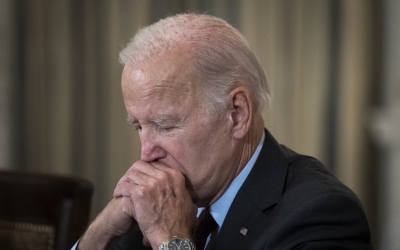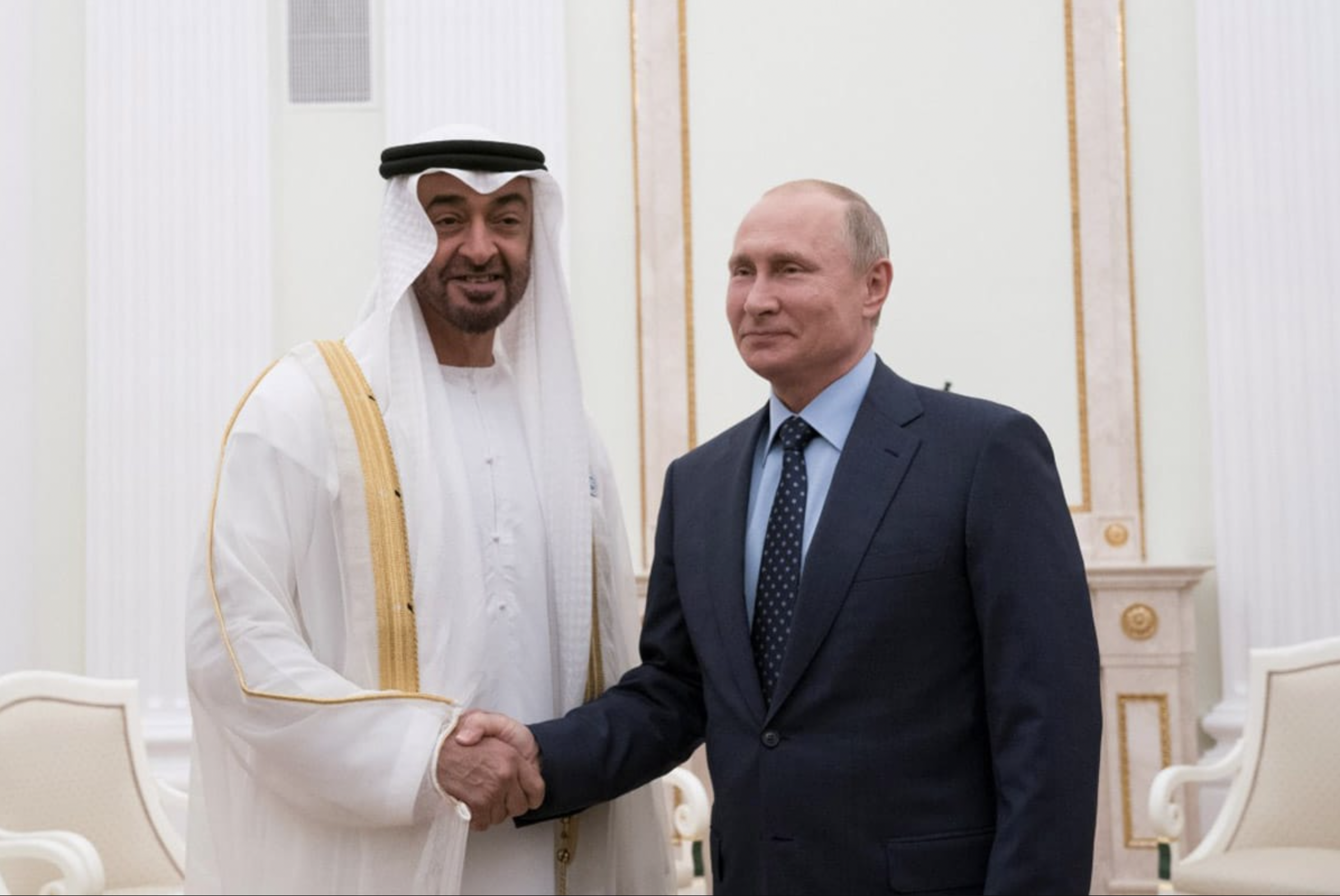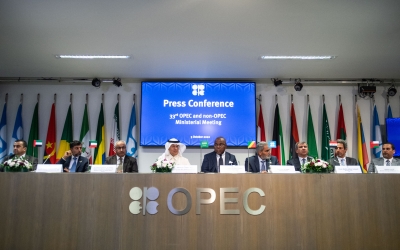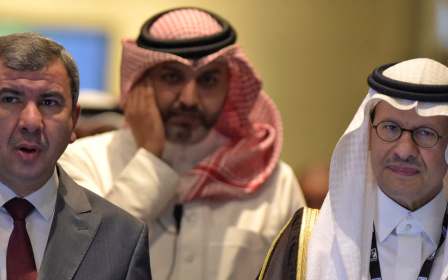US-Saudi rift: The Gulf states are no longer doing Washington's bidding
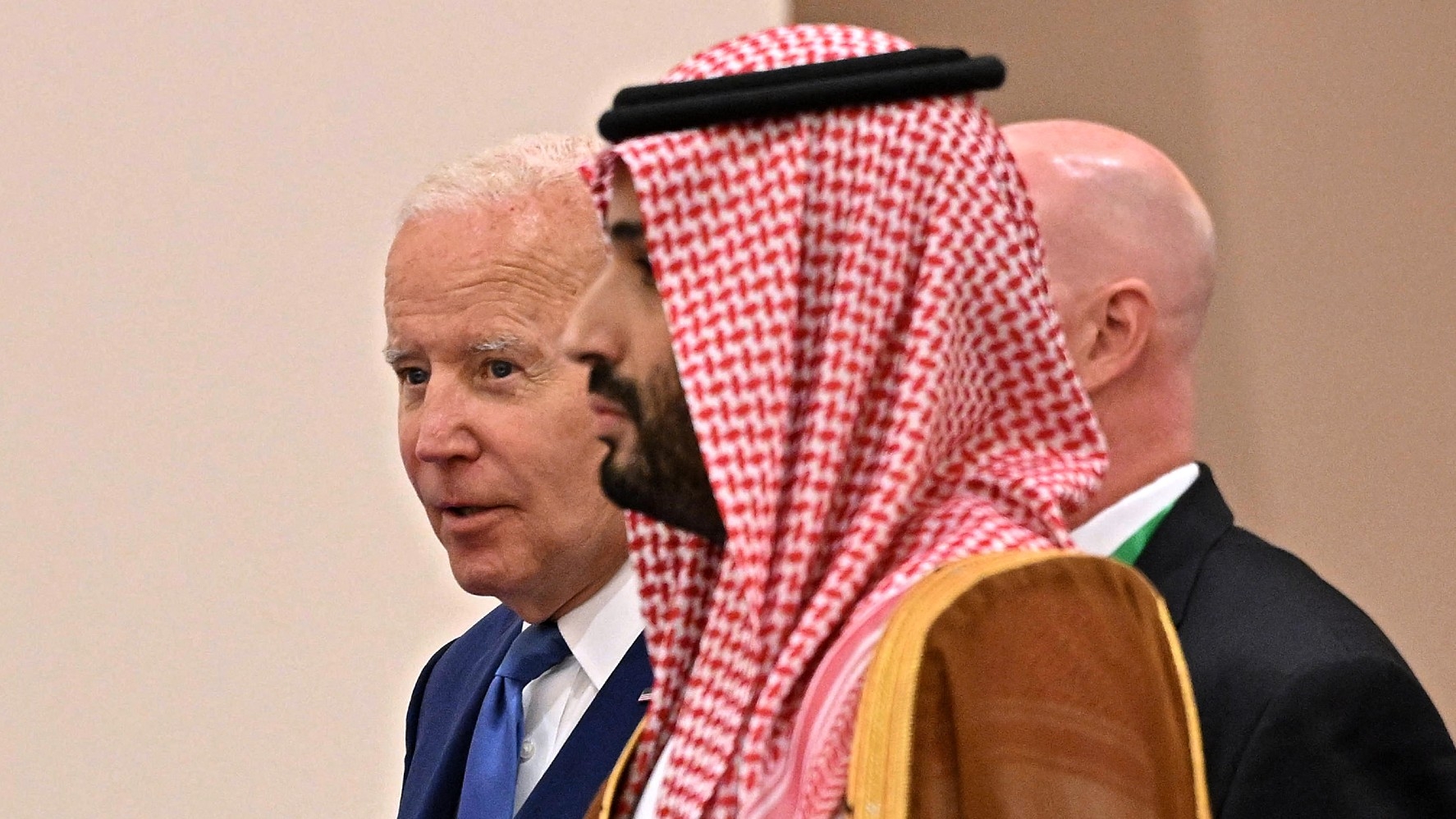
The latest episode of US-Saudi confrontation – this time over the Opec+ decision to cut oil production by two million barrels a day – has been described as a new low point in bilateral relations.
Yet, in the past 80 years the two unlikely partners have endured worse times, if one thinks of the Saudi oil embargo in the 1970s, the 9/11 fallout, or the US invasion of Iraq in 2003. What is different now is that the debate over the future of the relationship is taking place against the backdrop of a changed geostrategic reality in the region – a reality that has been borne by the lack of US strategy towards the Gulf.
New MEE newsletter: Jerusalem Dispatch
Sign up to get the latest insights and analysis on Israel-Palestine, alongside Turkey Unpacked and other MEE newsletters
Unlike the 1970s or the 2000s, this bilateral relationship has evolved in a US strategic vacuum where Washington no longer communicates a clear commitment to the security and stability of the region.
In the absence of a substantiated American grand strategy for the region, the discourse between the United States and its Gulf partners more widely has been defined not by substance but a politicised narrative on both sides.
In previous decades tensions between Washington and Riyadh were resolved behind closed doors and rarely spilled into the public domain. Today, the most intimate aspects of bilateral diplomacy are ripped apart for everyone to see – complete with social media bots and trolls pushing their side of a polarising story.
Without a clearly formulated grand strategic purpose of the US relationship with the Gulf, pundits, journalists and officials alike are free to fill in the blanks. What emerges is a spiral of politicised and emotive narratives and counternarratives, which create expectations and pressures – especially in the United States – to which policymakers ultimately need to respond.
Filling the void
The current spat has been a decade in the making and is situated within the aftermath of former US President Barack Obama’s pivot to Asia.
The US policy of leading from behind and empowering local actors to do America’s bidding on the ground left a void that competitors were more than willing to fill. Most importantly it was arguably the US and the West's failed Syria policy that created an opportunity for Russia to return to the Middle East in 2015.
While the Ukraine war has become a new liberal rallying point, this value-based consensus in the West appears to be an illusion outside Nato
Meanwhile, Middle Eastern partners were left to their own devices fending for security and stability in a region left in disarray by nearly a decade of US-led military adventurism in Iraq and an inconsistent and half-hearted approach to the revolutions of the Arab Spring.
More so, Washington actively pushed its partners in the Gulf, particularly, to take over more responsibility in the region, expecting they would advance liberal ideals and values on its behalf – a hubris born out of the US's failed understanding of its declining appeal in the region.
In the apolar world of the 21st century, the US metric of power is archaic. It is no longer about how many boots you can put on the ground, but how you effectively orchestrate all levers of a nation’s influence to advance your interests – more through appeal and subversion than compulsion and coercion.
This has led to a diffusion of power as the strength of one’s narrative can forge partnerships, create geopolitical alignments and synchronise interests.
But the US messaging towards the region has been everything but consistent, riddled with say-do gaps between what Washington says and what it delivers. And while the partnership between the United States and the Gulf was always built around interests more than values, the appeal of what America stands for would be strengthened if it were as passionately for the rights of Palestinians as it is for the rights of Ukrainians.
Ideological bipolarity
The emerging ideological bipolarity between the liberal West and the authoritarian East that infused the debate over Saudi’s Opec decision puts the credibility of the US's grand strategic narrative to the test.
In recent months, Middle Eastern officials and policymakers have asked me what it is that the West stands for in Ukraine. They do not buy into the East versus West, authoritarian versus liberal divide that is at the heart of a new war over narratives. And while the Ukraine war has become a new liberal rallying point, this value-based consensus in the West appears to be an illusion outside Nato boundaries.
The threats issued by US lawmakers and the Biden administration are hardly going to generate tangible consequences for Riyadh
Consequently, especially Saudi Arabia and the United Arab Emirates (UAE) have honoured Obama’s call to take on more responsibility - but doing so as they see fit. They have developed networks and partnerships of their own, which they use to advance their own interests with little regard for western interests or values.
The Ukraine war has put the Gulf states ever more in the driver’s seat. Beyond their dominance in global energy markets, they have become the centre of gravity of the entire region, making them the focus of increased great power interest from China and Russia.
This newly won confidence has been on display over the past week in the different rounds of a bilateral shouting match driven by politicised rhetoric more than substance – for the most part actually not between the United States and Saudi Arabia but between the Democratic party and the kingdom.
The breakdown of effective diplomatic communication looks quite similar to the state of affairs between both countries just before Obama left office. Because as much as the Saudi Opec move was driven by energy price stabilisation and Russian accommodation, it was a demonstration of power vis-a-vis a weakened US president struggling in the polls just before an important mid-term election.
Riyadh and Abu Dhabi in particular would like to return to a US Middle East policy that, albeit equally unsubstantiated strategically, is open to be sold to the highest bidder. A GOP subverted by Trumpism appears to offer exactly that.
Pivoting to the East
No wonder the narratives coming from the Biden administration and Democratic lawmakers are extremely vicious towards the Saudis. Framing it within the emergent bipolarity of you-are-either-with-us-or-against-us, Democratic senators have pushed for US-Saudi relations to be put on ice.
Meanwhile, UAE President Mohammed bin Zayed exploited the anti-Saudi “storm” coming from Washington to commit to a formal state visit to Russia. The UAE used the opportunity to cement a bilateral partnership that for Russia is far more strategic and important for survival than the relationship with Riyadh.
After all, the UAE has become the most important hub for Russian sanctions evasion.
In the meantime, salvos of weaponised narratives are fired at Saudi Arabia to which the kingdom and its information networks always have an immediate response.
Amid the Gulf’s pivot to the East, these shouting matches are highly destructive to America’s credibility in the region as the erstwhile superpower struggles to come to terms with its new role as a primus inter pares whose former client states refuse to act as vassals.
The problem at the heart remains that beyond all that narrative, the threats issued by US lawmakers and the Biden administration are hardly going to generate tangible consequences for Riyadh, because the United States is unable or unwilling to develop a sustainable and credible US foreign and security policy towards the region that could actually do without Saudi Arabia or its partners in the Gulf.
Saudi Crown Prince Mohammad bin Salman has literally gotten away with murder once and is unlikely going to stumble over an oil production curb he can credibly sell as energy price stabilisation.
The views expressed in this article belong to the author and do not necessarily reflect the editorial policy of Middle East Eye.
Middle East Eye delivers independent and unrivalled coverage and analysis of the Middle East, North Africa and beyond. To learn more about republishing this content and the associated fees, please fill out this form. More about MEE can be found here.



